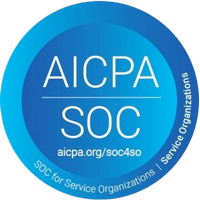As assisted living operators respond to COVID-19 devastation and the resulting drops in occupancy, it’s time to talk about marketing. In this resource, we’ll review challenges facing the industry, strategies to build your community’s reputation, and how to market your assisted living community.
Challenges Facing Assisted Living Communities
Nearly every healthcare service has struggled with staffing shortages in recent years. Still, there are certain issues that affect assisted living communities in particular.
COVID-19 Infection and Community Deaths
Between the start of the COVID-19 pandemic and February 2022, more than 200,000 residents and employees in long-term care communities have died from the virus. At the beginning of the pandemic, nearly half of all COVID-related deaths in the United States occurred in long-term care communities.
As the number of COVID-related deaths has declined, so has the share of these deaths that occur in long-term care communities. Notwithstanding heroic efforts by assisted living communities across the country, the virus caused enormous suffering in the early days of the pandemic. Testing was a complete patchwork, and the initial lack of vaccines and protective equipment had devastating effects for both our residents and our associates.
Staffing Shortages
Practically every position employed in assisted living is in high demand and short supply. As of 2021, 96% of assisted living communities were experiencing staffing shortages in some form. In some instances, these shortages forced communities to reduce their operations and the number of residents for admission. The combined force of illness, fear, anxiety, and burnout created a vicious cycle in the workforce. The reduction in associates and residents created an economic disaster that has affected occupancy, morale, and service quality. This only puts more pressure on recruitment and staffing.
By 2040, home health expects to see a shortage of 355,000 caregivers, who are also frequently employed in long-term care communities. Meanwhile, for every CNA that becomes certified, six leave their jobs, likely due to a combination of fatigue, burnout, and less pressure-filled opportunities in other settings.
Changing Resident Demographics
To stay afloat, some assisted living communities have expanded their client base. Communities that previously catered mostly to older residents might refocus on younger adults who are seeking living assistance to help manage mental illnesses or substance abuse disorders.
The ability to adapt has certainly saved assisted living communities, but it also comes with its own issues. Not every CNA has experience caring for residents with significant behavioral issues. In this case, healthcare workers may be attempting to provide care for conditions for which they are unprepared. Without proper training, this can result in stress for associates, increased turnover, and potentially insufficient care for residents.
How to Market Your Assisted Living Community For Operational Success
Not every challenge facing assisted living is a matter of marketing. That being said, a reputation as an employer of choice will matter in the marketplace to your residents and their family decision-makers.
Understand Your Audience
Ask yourself who, exactly, you’re speaking to in your marketing efforts. You may be working on winning over prospective residents, their families, or both. Keep your audience in mind while you build your marketing strategy. Your efforts will only work if you’re speaking your audience’s language. You’ll need to appeal to their specific needs and communicate through platforms they’re likely to access.
Build Relationships in Your Community
Often, social workers will be the people helping your potential residents find housing, care, and support after leaving a hospital or rehabilitation center. It’s worth your time to get to know local social workers and build a positive relationship.
You can also take your advertising materials directly to post-acute hospitals and long-term and senior care communities. Making these materials available will help patients and residents gain awareness about the options available to them. Take the same approach with community centers, senior centers, local churches, and other spaces where local residents come together.
Although a substantial amount of your marketing will likely happen online, there are actions you can take to build immediate, personal relationships with locals. Try hosting community events like open houses or picnics. Invite visitors to tour your facility and learn more about what you offer.
Widen Your Digital Reach
For most businesses, marketing is a largely digital endeavor. If you’re hoping to appeal to family members across generations, it’s especially important to understand how they use the internet to learn about care options.
In all likelihood, a potential resident’s first impression of your community will occur after they or a loved one searches for assisted living options online. Help them find you by focusing on SEO. Your most relevant terms, like your location, should be present in your website, social media, and other connected platforms.
Families might also check assisted living community databases. If you’re not already listed in databases like SeniorHomes.com, reach out to learn how you can be included.
Improve Your Brand Image
Ultimately, the core of marketing your community is your reputation for delivering high-quality and high-touch service. The second-best thing you can do is make your quality of care absolutely obvious through your reputation and advertising.
Update Your Materials
Make sure your advertising literature is up-to-date and that your website is informative and attractive. A readable, friendly, visually appealing interface will encourage new visitors to keep looking. In all of your materials, including your home page, include a clear call to action that prompts visitors to take the next step. You might encourage visitors to request more information or schedule a tour.
Compare Your Operations Against Other Communities
There are digital tools available to help owners and operators in assisted living assess their operations. The Care Prepare database provides analytic insight to help you understand how your facility stacks up against the competition. Keep your eye out for areas to grow, but also for areas where you shine. You can use this information to your advantage in marketing.
Build an Incredible Team
Nothing is more important to the resident experience than your associates. More often than not, your front-line caregivers are the primary sources of information for families who are trying to understand what is going on with their mother or father. In most cases, your staff is also the first thing people will talk about when describing their experience with your community.
Boost your reputation by ensuring you have the best staff possible. To do this, you will need to hire rapidly—after all, plenty of other businesses are courting the same candidates. In addition, look for opportunities to improve your communication, employee benefits, and culture. These efforts will likely increase your retention rate, but they will also give you a great reputation as an employer, so more qualified candidates can get excited about joining your community.
Better Assisted Living Staffing With Apploi
Apploi is on a mission to help healthcare recruit, hire, and manage talent more successfully. We help employers control their brand and engage applicants through unlimited communication, branded career pages, instant job post distribution, and a painless application experience.
Interested in learning more about how you can recruit, hire, and onboard healthcare staff quickly? Contact us today for a free demo of our end-to-end solution.





